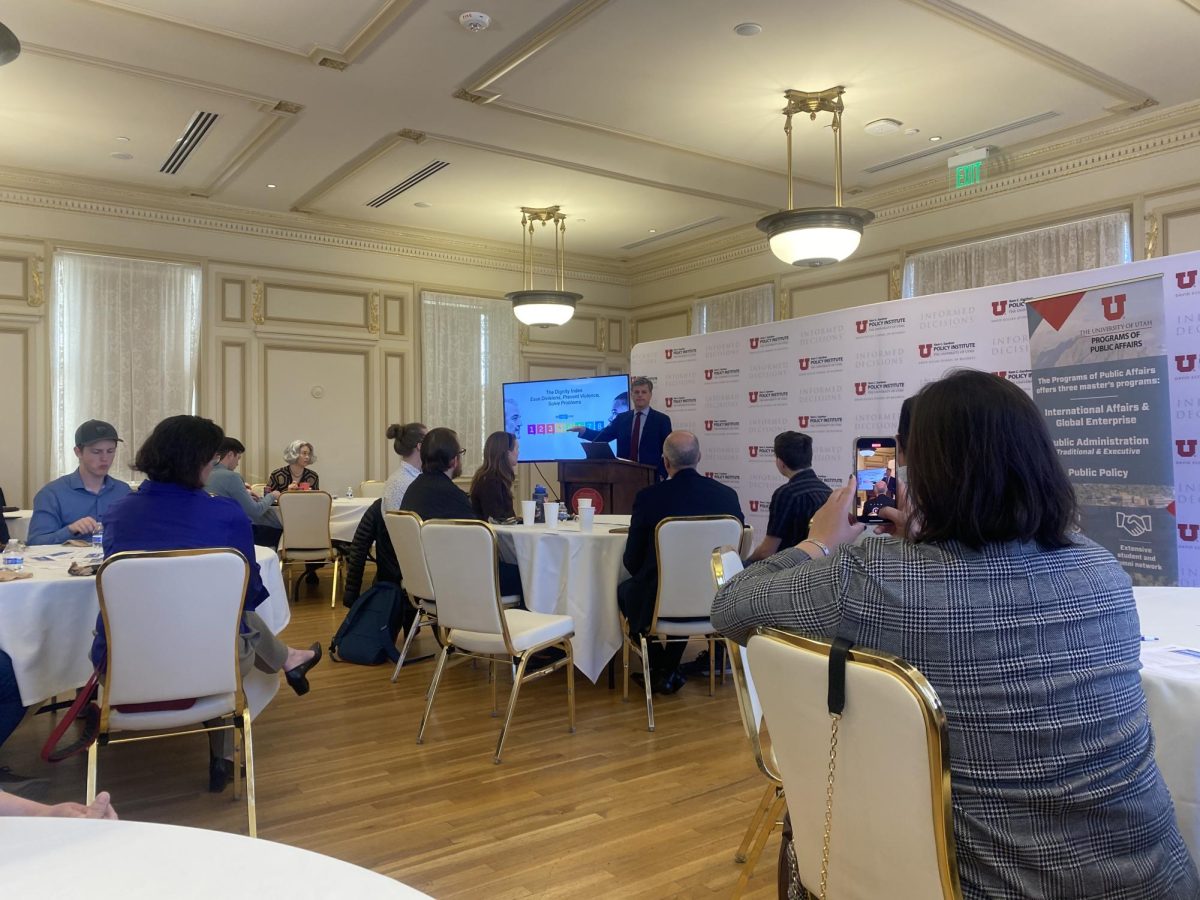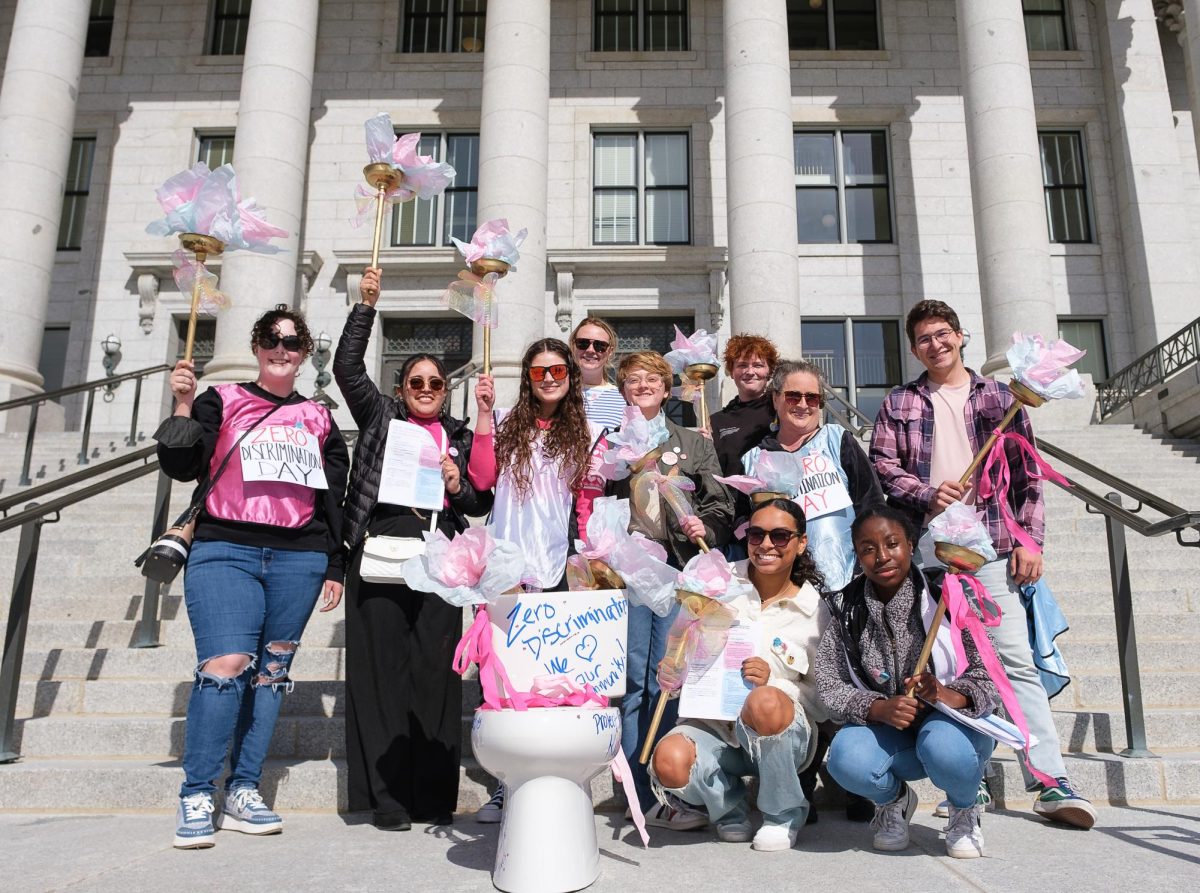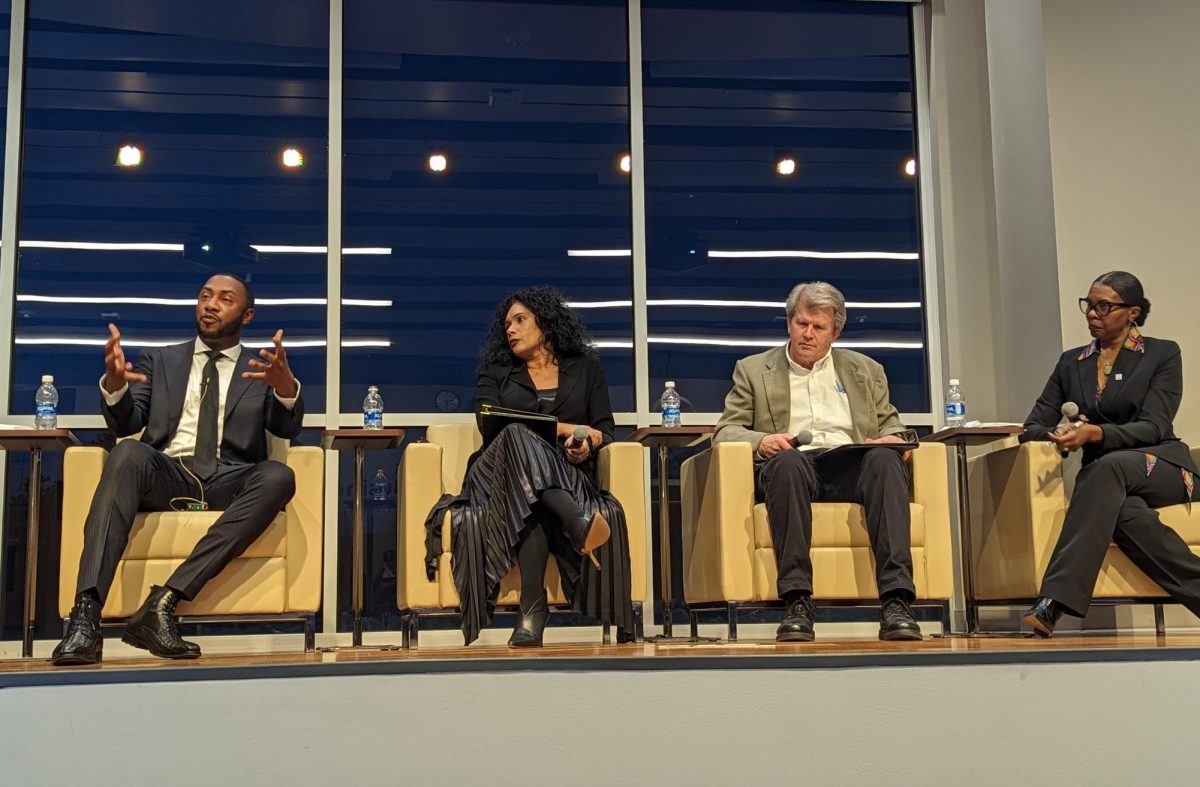
on Saturday night. Photo by Dane Goodwin.
A bill at the state legislature is looking to eradicate “aggressive” panhandling in Utah.
House Bill 101, which is sponsored by State Rep. Jim Nielson (R-Bountiful) focuses on controlling activities on roads and highways under state jurisdiction, prohibiting pedestrian use of these areas, which were never intended or constructed with walkers in mind. The bill is targeted at panhandlers who camp out at freeway exits, but also prohibits intimidating forms of panhandling.
Nielson said the bill would make panhandling in places where people feel “a great sense of danger” or vulnerability, such as ATMs or banks, a Class C misdemeanor.
The bill does not address more specific panhandling laws, leaving such decisions up to local governments.
A federal judge struck down Utah’s older panhandling law in 2010, on grounds of its being too all-inclusive. Nielson had to convince legislators in the House Transportation Committee that his bill would not face similar problems if passed.
He believes because the bill focuses on safety instead of precluding solicitation, it would be defensible in court.
“I don’t want to pretend that we are passing a safety bill and it has nothing to do with panhandling. That is a major emphasis of this bill. But there are many other factors as well,” Nielson said.
The bill addresses panhandling on roads and highways, however, because it is a legitimate safety issue.
“It’s designed for that,” Nielson said.
Pamela Atkinson, an interested community member, came to the committee’s discussion of the bill because she hopes to help Utahns understand how best to give to people in poverty without perpetuating drug habits.
After 20 years of working in the community, she estimates 70 percent of people who are soliciting money are not homeless.
“They are there to get [money] for drugs and alcohol and other reasons,” she said. “I’ve seen them drive to their homes.”
She wants charitable people in the state to know there are ways to give money that will make sure it falls into hands that need it.
“I’m very much in support of this bill … we can really make a difference and decrease the number of panhandlers,” she said.
Donna Milakovic, vice president of the Utah Valley Chamber of Commerce, also spoke to the committee to provide the story of an example of local legislation that could help downtown Salt Lake and other urban areas in Utah.
Local government in Provo passed regulations that made it a misdemeanor to pass money out of a car on busy roadways after noticing an increase in begging when Frontrunner first extended to Utah Valley.
She also supported Atkinson’s analysis that much of the panhandling problem stems out of drug rings and said that when law enforcement in Provo did a drug bust after going undercover with some of the beggars, there were no panhandlers in the county for six weeks.
“I think there is evidence that not all panhandlers are homeless,” she said.
The bill passed narrowly out of committee last week.
[email protected]















